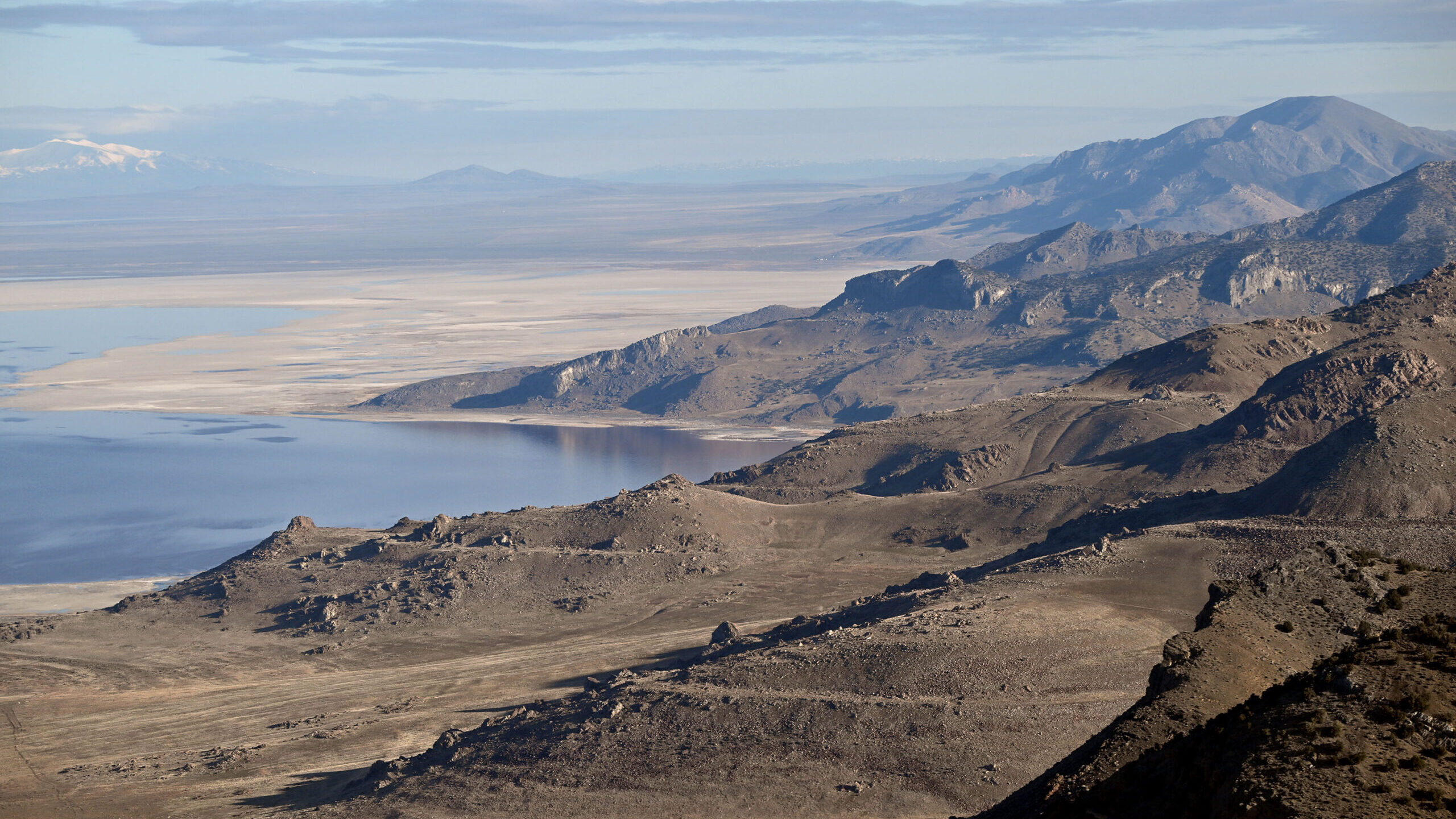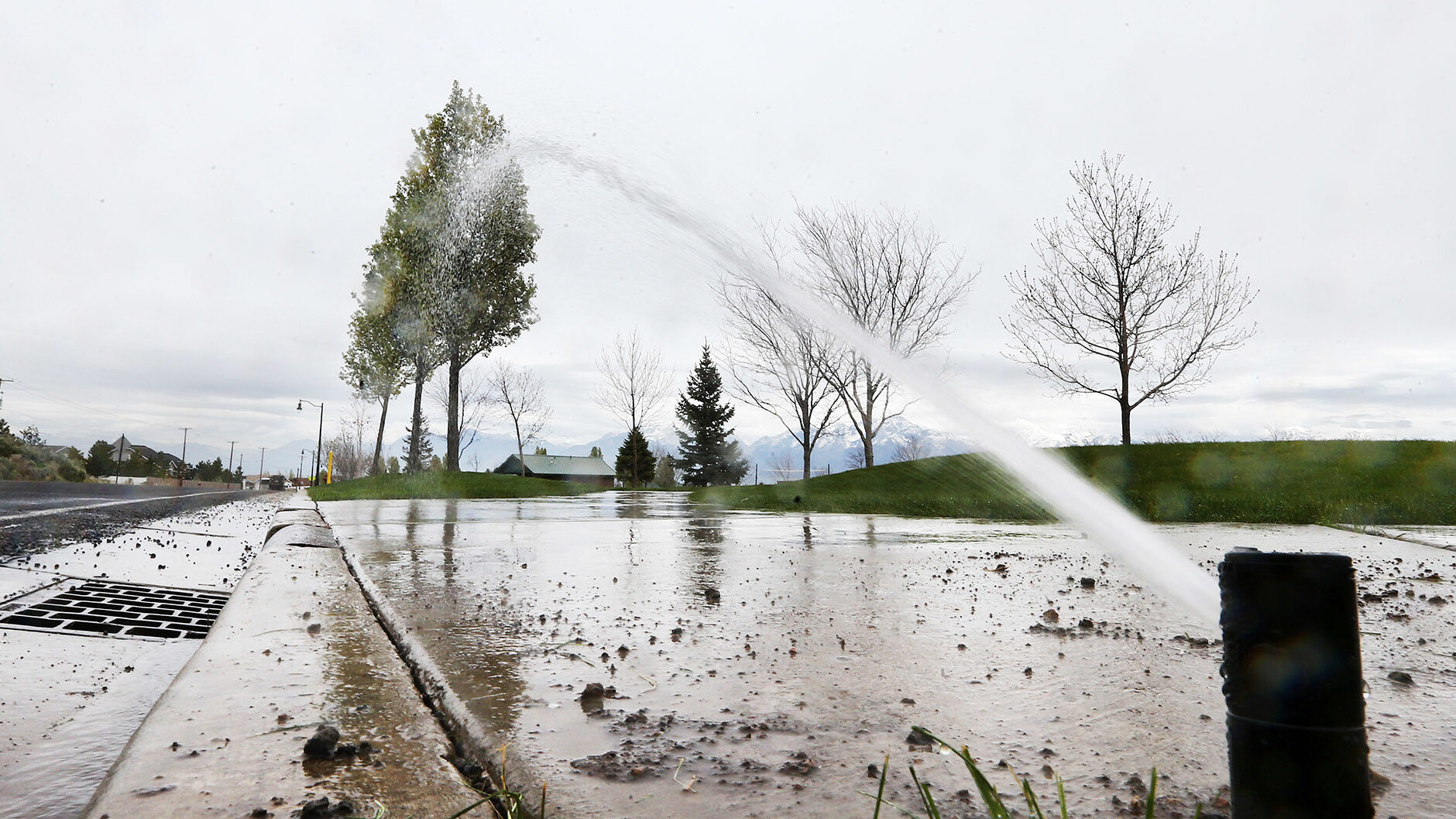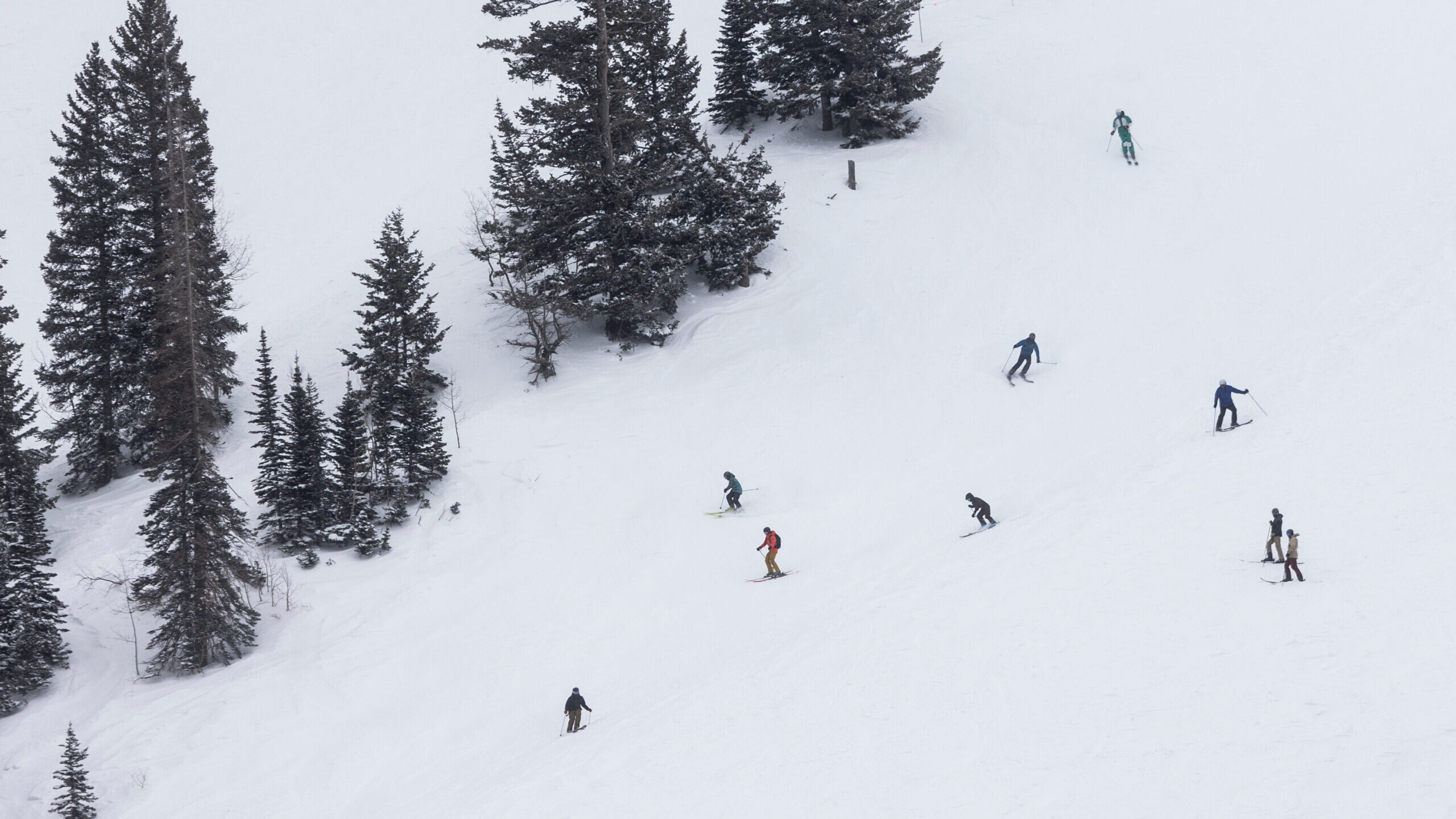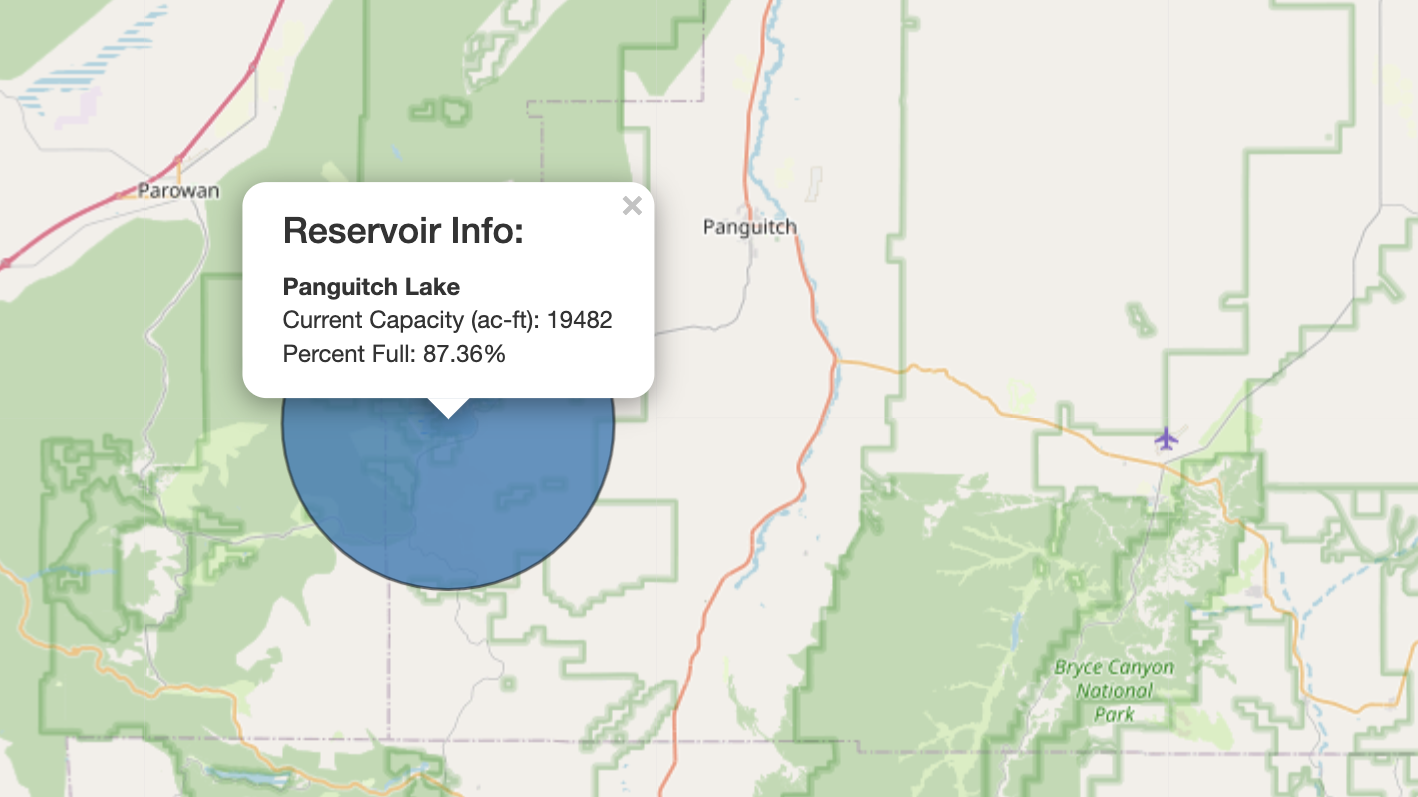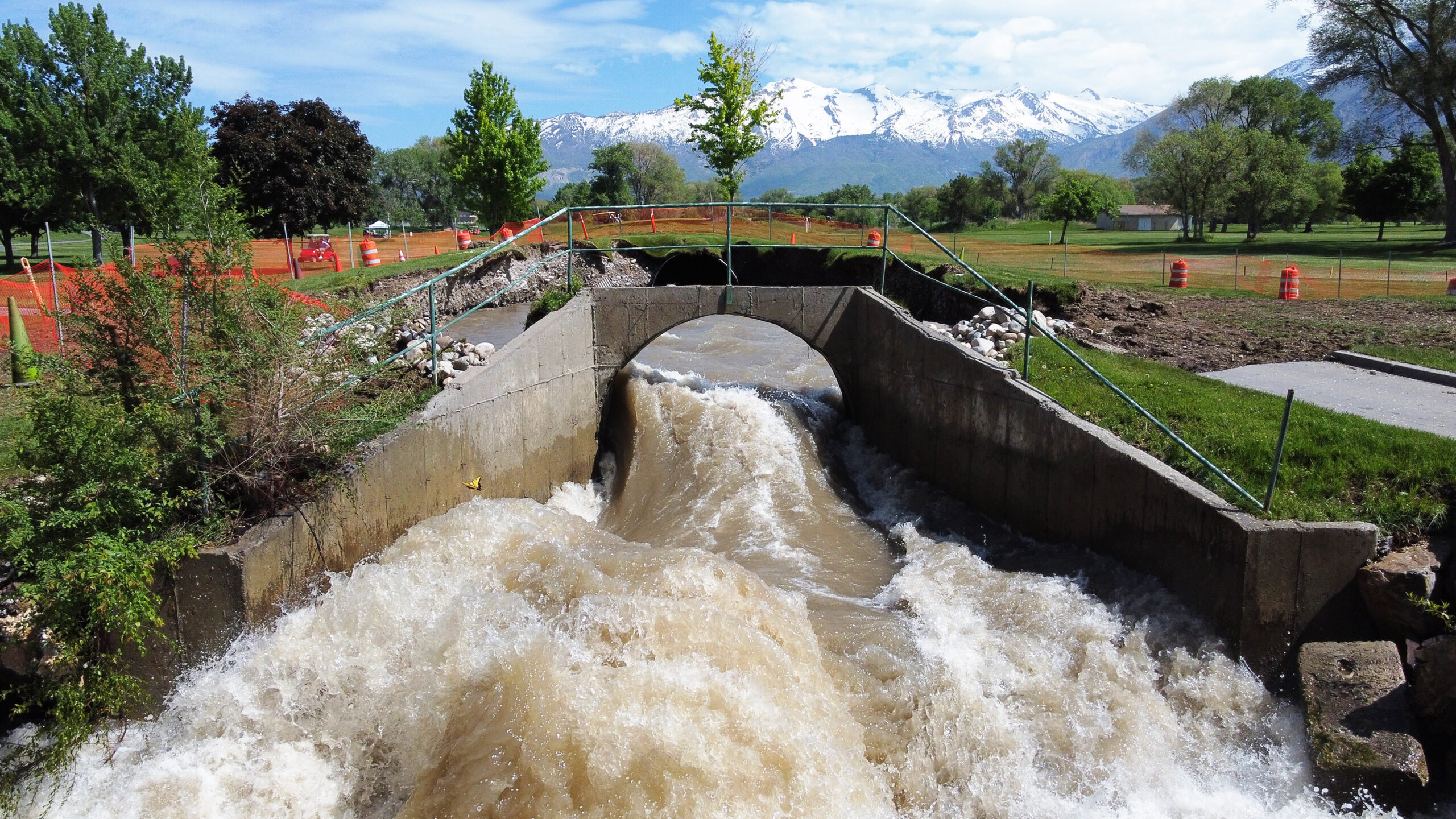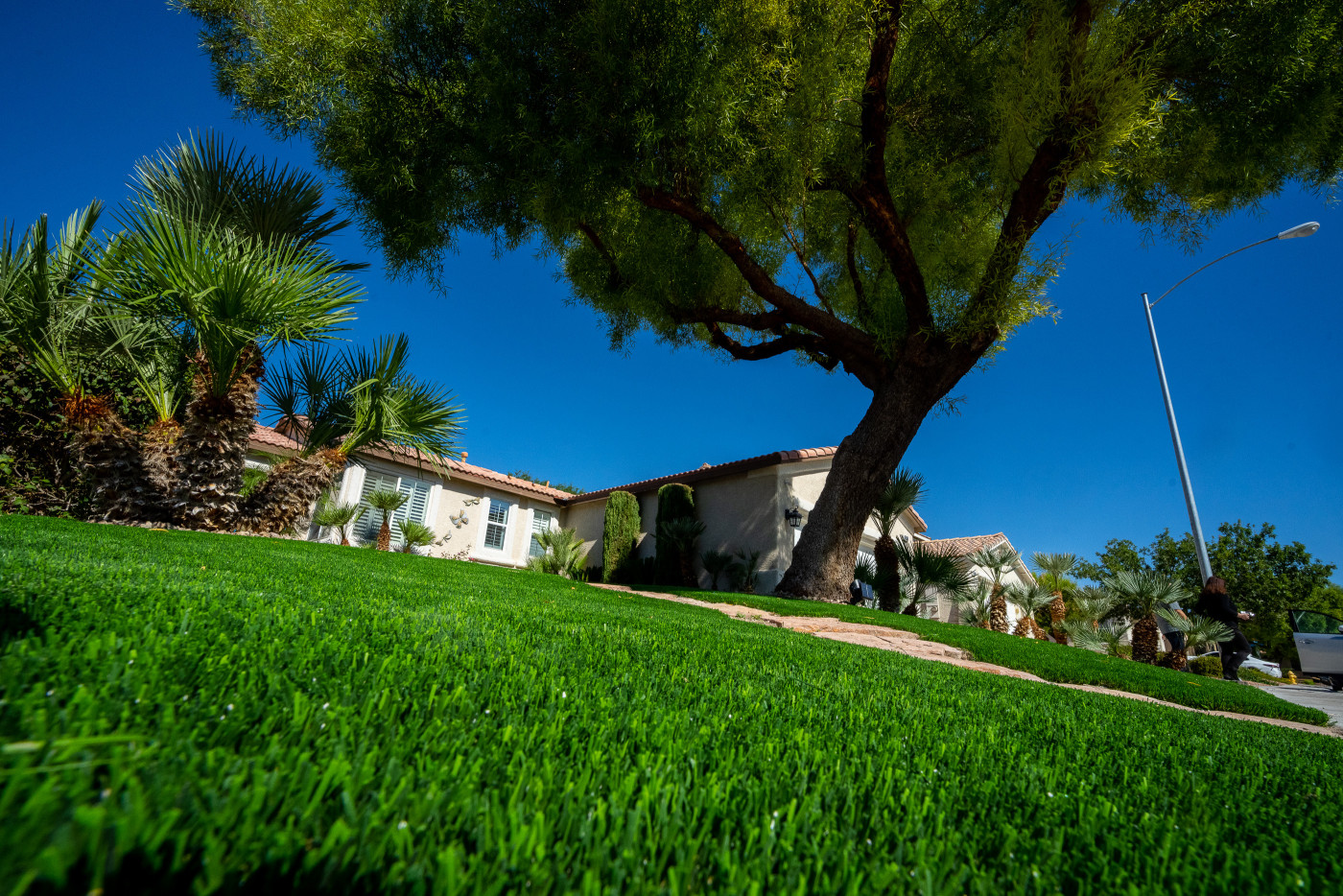A pipeline to Utah from the Mississippi, is that the drought cure?
Jan 18, 2023, 3:00 PM
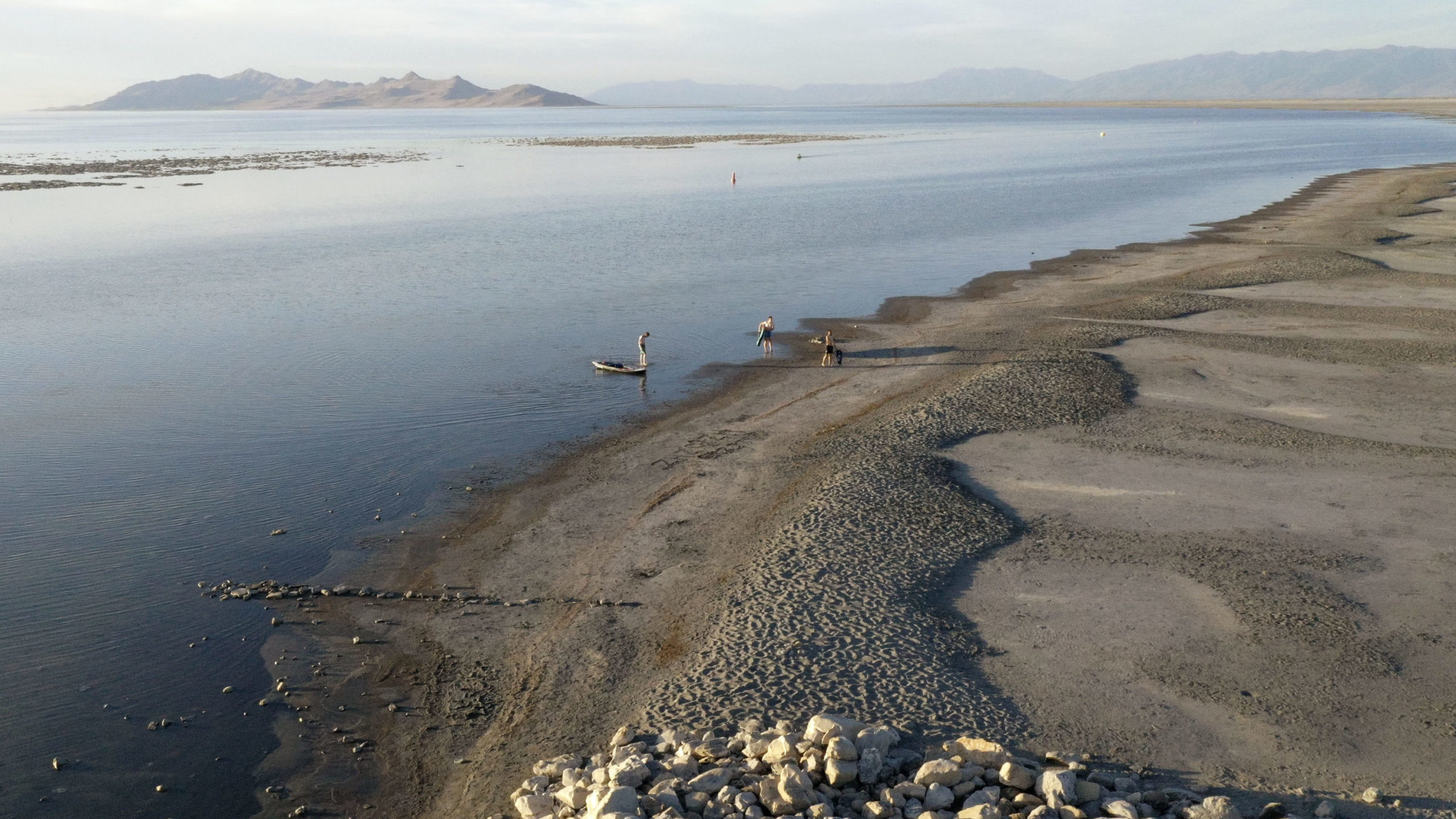
FILE: Paddleboarders leave the water at the Great Salt Lake State Park in Salt Lake City on Friday, June 10, 2022. (Laura Seitz/Deseret News)
(Laura Seitz/Deseret News)
SALT LAKE CITY — A pipeline from the Mississippi is one of the ideas circulating around the Utah Capitol at the beginning of the 2023 legislative session. It’s meant to address Utah’s longstanding drought.
It falls into one of what Utah Sen. President Stuart Adams calls the two ways to reduce the drought. The first is to conserve. The second is to bring the resources from other places.
Adams said Utah is going to do both. Possibly, in one case, with the help of Israeli scientists.
One of the ideas on the conservation side of this equation involves drip systems. Not the kind you may have in your garden.
“We use a drip system here where you drip water around the base of the plant, or drip it on their leaves,” Adams told KSL NewsRadio.
Related: Scientists sounded the alarm about the Great Salt Lake. Are lawmakers listening?
“But the Israelis have actually developed a subsurface drip, it goes under the ground.” That location change for a drip system can greatly eliminate the evaporation that accompanies traditional drip systems.
When they added fertilizer to the subsurface drip system, Adams said Israeli scientists doubled their crop yield even though they’re using just half of the water used in more traditional methods.
He said the legislature will discuss the use of underground driplines for government buildings.
A problem that requires cooperation and innovation
The water challenge is not isolated to Utah. The entire Intermountain West is in the same boat, and Adams said it’s possible that answers or ideas from other states could benefit Utah.
Like a pipeline from the Missouri or Mississippi rivers over the Great Divide to carry water to Utah and the Western U.S.
“People from Kansas said, ‘go tap the Mississippi River and bring it back through Kansas, we’ll help you,'” Adams said. “I’ve talked to people in Montana that say there’s water in Canada.
Adams showed resistance against the idea that Utahns would have to change their lifestyle to better live with drought.
“I don’t see us sitting back and drying up, or letting our quality of life deteriorate. We’re going to find a way to solve this problem.”
You can hear the entire conversation on the KSL Newsradio podcast, Money Making Sense.


